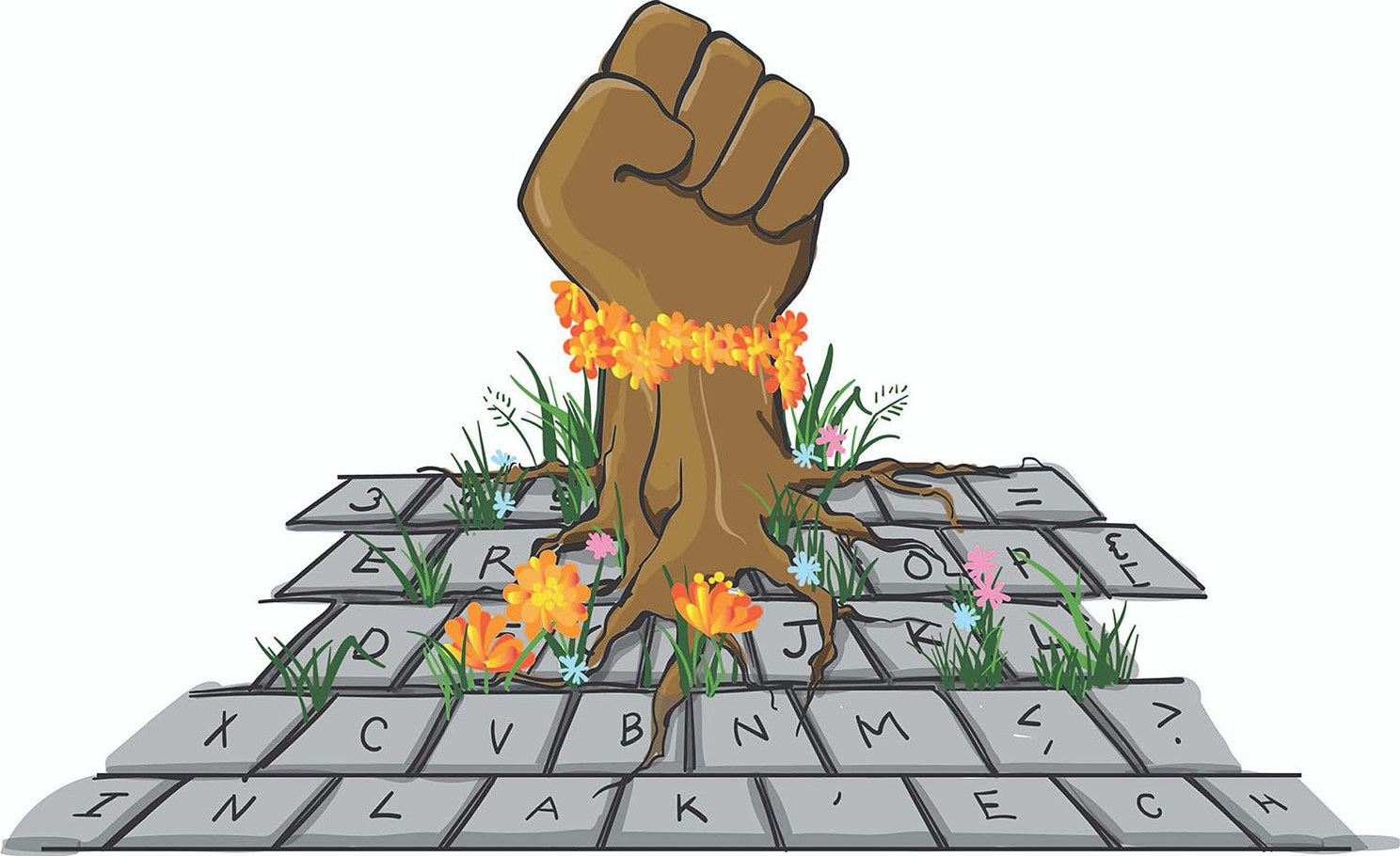The lasting impact of ethnic studies

A graphic symbolizing the Ethnic Studies and Education class, fall 2020 Illustration: Yeni Yi
As she prepared to lead classmates, professors, teaching fellows (TFs), and visitors in a virtual Zumba session, Bri Braswell paused for a moment of gratitude.
“It has been a gift, a breath of air, for me to be here,” said Braswell, a master’s student in the Higher Education Program, looking out across a sea of Zoom squares.
The participants of Braswell’s Zumba class had been brought together over the past two days for the 2020 Ethnic Studies Symposium, Healing (Y)our Humanity, a shared space for community healing, nurturing, and dreaming organized by the students of HGSE T004: Ethnic Studies and Education. For Braswell, who is a licensed Zumba instructor and one of the symposium’s organizers, leading the community in dance was a small piece of her larger final project, “Zoom-ba with Bri: Healing Through Movement,” which she presented during the symposium.
Taught by Lecturer Christina “V” Villarreal for the past five years, with a dedicated teaching team, Ethnic Studies and Education is one of HGSE’s most lauded and most popular courses. Although it began as an intimate class of 30, it has since grown to include over 100 students. And every year, students leave the class raving about its importance for their practice and for their lives.
“After taking this class, it’s so clear to me that we need to be teaching ethnic studies in middle school, in elementary school, in high schools,” said MK Kirigin, Ed.M.’17, who took the class while a student at the Ed School, in an Instructional Moves video filmed about the course. “My experience of it was so reaffirming of my identity, and the community we built as a group was so strong during the course of one semester. I feel like I have lifelong friends already, including V.”
Her words are echoed by one of this year’s students, Alika Masei. “Dr. V and my classmates remind me that education is always people-centered work,” said Masei. “You cannot be an effective educator, administrator, or policymaker without understanding how the dominant structures of our society create barriers for underrepresented people. I will continue to move forward in my professional career carrying this critical, people-centered lens.”
At its inception at HGSE, the course was a grassroots effort of graduate students, explains Villarreal, the faculty director of HGSE’s Teacher Education Program. “Most Ethnic Studies classes, like this one, don’t exist because the institution decides; they come from struggle and student protest. Ethnic studies is always organized for and by students.”
Villarreal teaches the course because she is committed to the field and the movement of ethnic studies, a discipline that she credits with raising her, in an academic and personal sense. “I wouldn’t be where I am without ethnic studies,” she said. “It’s more than a curriculum or a syllabus. It’s a movement, a way of life — one I am deeply and fiercely committed to.”





